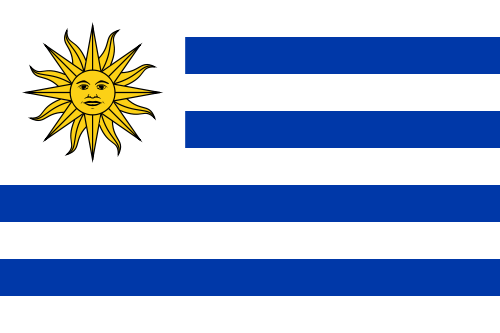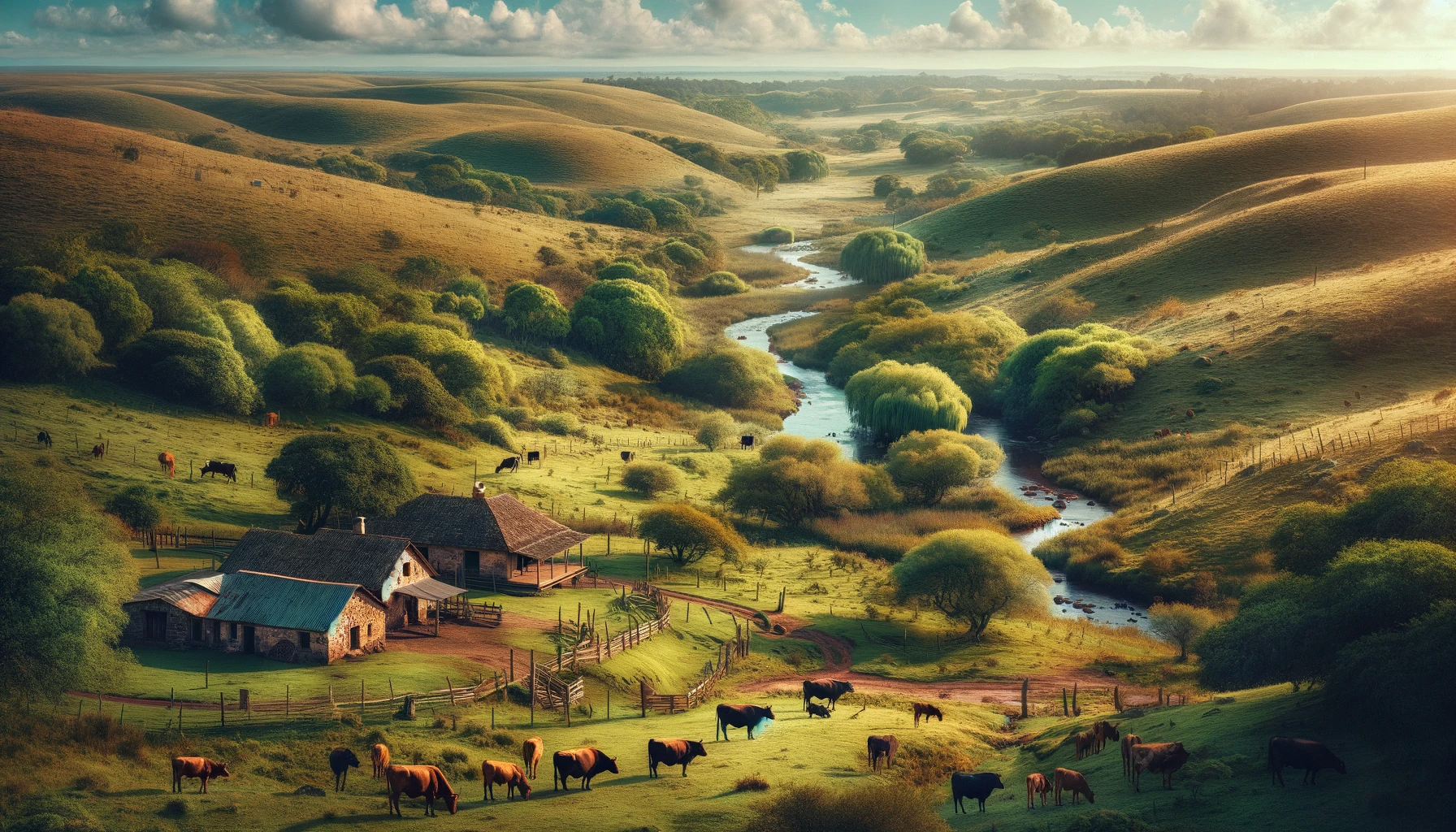List of National and Public Holidays for Uruguay in the year 2024
- New Year’s Day: Monday, 1 January 2024
- Epiphany: Saturday, 6 January 2024
- Carnival: Monday, 12 February 2024
- Carnival: Tuesday, 13 February 2024
- Maundy Thursday: Thursday, 28 March 2024
- Good Friday: Friday, 29 March 2024
- Landing of the Patriots: Monday, 22 April 2024
- Labour Day: Wednesday, 1 May 2024
- Battle of Las Piedras Holiday: Saturday, 18 May 2024
- Birth of Artigas: Wednesday, 19 June 2024
- Constitution Day: Thursday, 18 July 2024
- Independence Day: Sunday, 25 August 2024
- Day of the Race: Saturday, 12 October 2024
- All Souls’ Day: Saturday, 2 November 2024
- Christmas Day: Wednesday, 25 December 2024

History
- Early History: Before European arrival, Uruguay was inhabited by indigenous groups like the Charrúa and Guarani.
- Colonial Era: Became a zone of contention between the Spanish and Portuguese empires in the 17th century. Eventually became part of the Spanish Viceroyalty of the Río de la Plata.
- Independence: After a series of battles and political maneuvers, Uruguay declared independence in 1825, following a brief period as part of Brazil.
- 20th Century: Marked by periods of political and economic stability and volatility, including the authoritarian civic-military regime from 1973 to 1985.
Geography
- Location and Landscape: Situated in the southeastern region of South America, it is bordered by Brazil, Argentina, and the Atlantic Ocean. Known for its rolling plains, fertile fields, and beautiful beaches.
- Climate: Has a temperate climate with warm summers and mild winters.
Culture
- Rich Heritage: A blend of mostly European (Spanish and Italian) cultural influences. The country is known for its strong literary and artistic traditions.
- Music and Dance: Famous for tango, candombe, and folk music. Montevideo’s Carnival is one of the longest in the world.
- Language: Spanish is the official language, with a distinct Rio Platense dialect.
- Cuisine: Known for its beef, asado (barbecue), and yerba mate, a traditional herbal tea.
Economy
- Agricultural Economy: Traditionally reliant on agriculture, with beef, soybeans, and dairy products being key exports.
- Economic Stability: Compared to its neighbors, Uruguay has experienced relative economic stability and equitable income distribution.
- Technology and Services: Recent growth in technology, telecommunications, and services, positioning Uruguay as a progressive economy in the region.
Politics
- Government Structure: A democratic republic with a president as both the head of state and government, and a bicameral legislature.
- Political Stability: Known for its stable democratic institutions and progressive social policies. It was the first country in the world to legalize the production, sale, and consumption of cannabis.
- International Relations: Active in regional and international affairs, with a focus on diplomacy, human rights, and trade.
Society
- Population: One of the most urbanized populations in Latin America, with around half residing in the capital, Montevideo.
- Social Services: Strong social welfare programs, high literacy rates, and a well-developed education system.
- Social Issues: Continues to address challenges such as economic disparities and environmental sustainability.
Science and Technology
- Innovation: Progressive in digital governance, e-government services, and renewable energy, particularly wind and solar power.
- Education and Research: Emphasis on education and scientific research, with investments in technology and innovation.
Arts and Literature
- Literary Tradition: A rich tradition with writers like Juan Carlos Onetti and Mario Benedetti. Montevideo hosts a vibrant cultural scene with numerous theaters and galleries.
- Visual Arts: Known for its visual arts, including painting, sculpture, and crafts, with influences from European and indigenous traditions.
Sports
- Football: A central part of Uruguayan culture, with a strong national team and a rich footballing history, including winning the first FIFA World Cup in 1930.
- Other Sports: Also participates in rugby, basketball, and cycling, among other sports.
International Relations
- Diplomatic Engagement: Known for its diplomatic engagement and active participation in the United Nations and other international organizations.
- Regional Cooperation: A member of Mercosur, focusing on regional integration and trade.
Challenges and Prospects
- Sustainable Development: Focusing on sustainable economic development and environmental conservation.
- Inclusive Growth: Working towards further reducing inequality and promoting inclusive social and economic policies.
Meta Description for Google (160 characters):
“Explore Uruguay, a gem of South America, known for its democratic stability, rich culture, progressive policies, and beautiful landscapes.”

